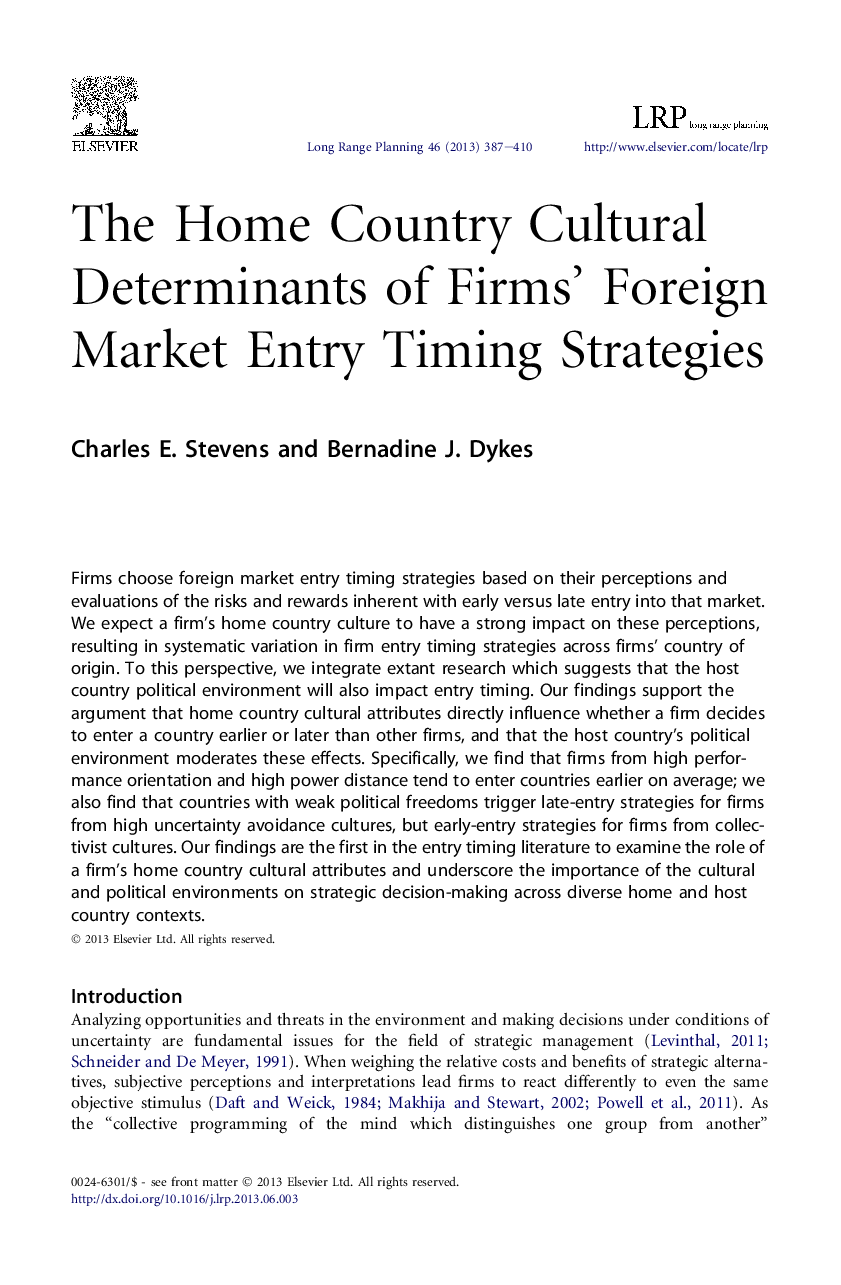| Article ID | Journal | Published Year | Pages | File Type |
|---|---|---|---|---|
| 1021386 | Long Range Planning | 2013 | 24 Pages |
Firms choose foreign market entry timing strategies based on their perceptions and evaluations of the risks and rewards inherent with early versus late entry into that market. We expect a firm's home country culture to have a strong impact on these perceptions, resulting in systematic variation in firm entry timing strategies across firms' country of origin. To this perspective, we integrate extant research which suggests that the host country political environment will also impact entry timing. Our findings support the argument that home country cultural attributes directly influence whether a firm decides to enter a country earlier or later than other firms, and that the host country's political environment moderates these effects. Specifically, we find that firms from high performance orientation and high power distance tend to enter countries earlier on average; we also find that countries with weak political freedoms trigger late-entry strategies for firms from high uncertainty avoidance cultures, but early-entry strategies for firms from collectivist cultures. Our findings are the first in the entry timing literature to examine the role of a firm's home country cultural attributes and underscore the importance of the cultural and political environments on strategic decision-making across diverse home and host country contexts.
